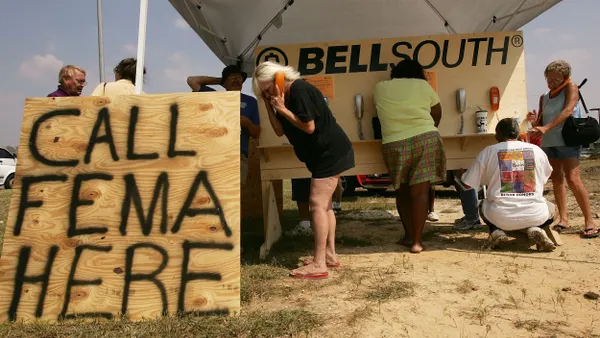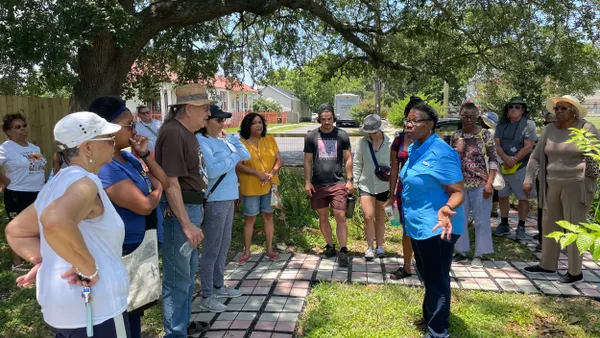Dive Brief:
- San Diego County last week released a draft Climate Action Plan that aims to cut greenhouse gases in unincorporated communities and in county government operations and boost renewable energy to 90% by 2030.
- The plan includes installing solar panels on existing homes, increasing solid waste diversion and improving the energy efficiency of new buildings.
- The new climate plan is in response to a 2015 Sierra Club lawsuit, the San Diego Union-Tribune noted. The county has opened a 45-day public comment period on the plan, scheduled to end Sept. 25.
Dive Insight:
San Diego County's proposed cuts do not perfectly mirror state targets, but they are close, according to the Union-Tribune. The county climate plan comes after the city of San Diego pledged to switch to 100% renewable energy by 2035.
California mandates call for reducing emissions 40% below 1990 levels by 2030 statewide. San Diego County's plan to combat climate change comes five years after the county's Sierra Club chapter sued it over an earlier draft of the plan, the news outlet reported. In response, officials overhauled the plan.
The plan will tackle emissions from unincorporated portions of the county — an area in the southwestern corner of California that encompasses approximately 3,570 square miles with a 2014 population of 454,599. To achieve those goals, San Diego plans to install solar panels on existing homes, increase solid waste diversion, improve energy efficiency in new buildings and boost renewable energy.
The city of San Diego wants to go a step further and power the city with 100% renewables in a separate plan from the county. To achieve that goal, the city is eyeing Community Choice Aggregation, a route that has faced questions from San Diego Gas & Electric. The CCA system would allow San Diego to purchase energy for its customers, leaving the utility to deliver the power.
SDG&E has verbally supported CCAs, but says it wants to ensure a vigorous debate over the system's structure by proposing to establish a separate investor-backed marketing division to lobby on CCA issues. Under CCAs, community choice providers set rates to support their power mix, and utilities receive a fee for distributing the power.
However, regulators rejected SDG&E's proposal, saying the utility provided insufficient information to judge its separation from ratepayer funding.











